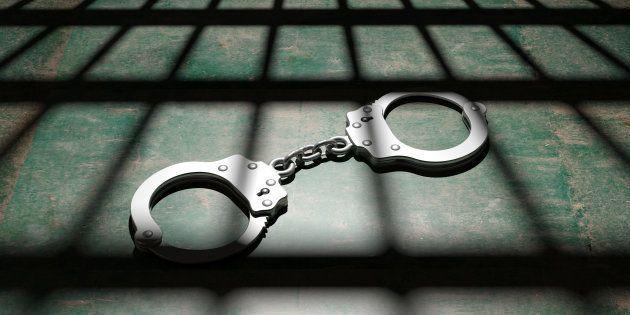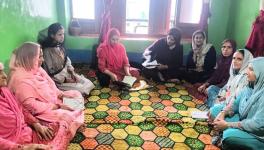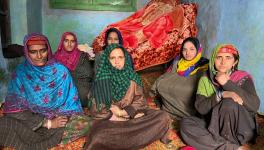Jamaat-e-Islami Member Arrested in Kashmir

Representational image. | Image Courtesy: Huffpost India
On the morning of July 16, when 70-year-old Ghulam Qadir Lone and his son were summoned by the police in Jammu and Kashmir’s Handwara district, he had not expected that he would be detained under the draconian Public Safety Act (PSA). Lone is an Islamic scholar and former general secretary of the banned Jamaat-e-Islami Jammu and Kashmir (Qaim-e-Jama’at). A close relative, requesting anonymity, said, “In the morning, Lone’s son and another family member was summoned by the police. They were interrogated, their data was taken and then were asked to leave. At around 12, Lone was summoned by Kralgund Police Station after which he was shifted to Mattan Jail. Lone is an aged man and is known for his good character and deeds - his arrest without warrant is uncalled for. We have no idea why he was arrested. Last month another Jamaat activist from another village was arrested.”
In February 2019, a notification, banning the group under the Unlawful Activities (Prevention) Act, was issued by the Ministry of Home Affairs after a high-level meeting on security, chaired by Prime Minister Narendra Modi.
The notification said the Centre is of the opinion that the Jamaat is "in close touch with militant outfits" and is supporting extremism and militancy in Jammu and Kahsmir, and elsewhere. The notification stated, “JeI is involved in anti-national and subversive activities in the country intended to cause disaffection.” However, this is not the first time that JeI is being proscribed, the organisation which was founded in 1942, has already faced two bans. JeI Jammu and Kashmir was first banned in 1975, as it opposed the Indira-Abdullah accord by calling it as the “gross violation of UN resolution.” The second time JeI was banned was in 1990, however, the ban was lifted in 1993.
In its press release, Jama’at e Islami Jammu and Kashmir condemned the arrest of its members.
The press release read, “Jama’at-e-Islami Jammu and Kashmir strongly condemns the fresh arrest spree of party leaders and activists by government forces and terms the ongoing harassment as an exercise of political vendetta….The fresh arrest spree by government forces is quite undemocratic and unethical. Since the government of India has banned the socio-politico-religious organisation Jama’at-e-Islami in Kashmir, the party has stopped all its peaceful and democratic activities, and has been contesting the baseless claims of the government in courts. But in one pretext or other, party leaders and activists are still being harassed and subjugated through different means by government forces which demonstrates political vendetta of the state.”
Following the ban on JeI (JK) earlier this year, several raids were conducted on the offices and houses of JeI leaders and activists in Kashmir, and several parts of Jammu including Kishtwar, Doda, Ramban, Poonch, Rajouri and other districts.
The ban on JeI and the arrest of its members has brought political parties under one umbrella to protest against the ban. The latest ban was issued after the Pulwama terror attack where an explosive-laden car rammed into a CRPF convoy, killing at least 40 personnel.
Get the latest reports & analysis with people's perspective on Protests, movements & deep analytical videos, discussions of the current affairs in your Telegram app. Subscribe to NewsClick's Telegram channel & get Real-Time updates on stories, as they get published on our website.
























